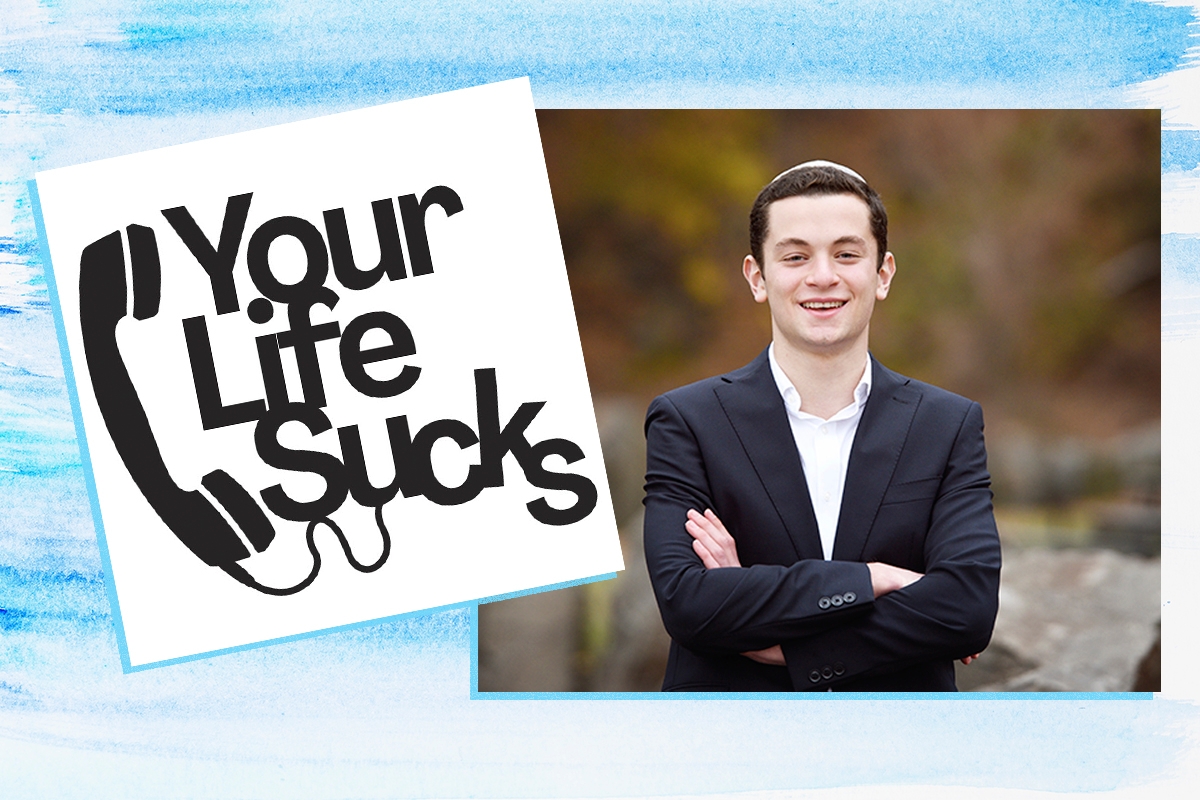Growing up has always been messy, but these days we’re seeing more authentic teen voices and experiences represented in media than ever before. Netflix shows like “Never Have I Ever” and “Sex Education” depict teen friendships, romantic relationships and mental health in delicate and meaningful ways. Meanwhile, on social media platforms like TikTok, teens are sharing more openly than ever the challenges that they and their peers are facing.
The issues teens face are evergreen, but the isolation of the pandemic has caused heightened stress, anxiety, depression and other mental health challenges for adolescents and young adults. And even before the pandemic, a study by the CDC found that more than 1 in 3 high school students experienced persistent feelings of sadness or hopelessness in 2019 — a 40 percent increase since 2009.
In the spring of 2020, Salanter Akiba Riverdale Academy (SAR) student Ben Small, 17, noticed the unique challenges his peers at the modern Orthodox high school were facing. And he found an antidote: he created a podcast about mental health that’s aimed directly at teens. Aptly named “Your Life Sucks,” the podcast, now in its second season, spotlights “raw discussions of mental health, created for teens, by teens,” as it’s described on Spotify, where it’s available to stream.
Now a senior at SAR, Small works on the podcast in his free time, releasing episodes every two weeks. In a typical episode, Small interviews one guest — which includes fellow SAR students as well as professionals like psychologists, dietitians and even fitness trainers. Remarkably, students open up about their diagnoses of mental health disorders, and they openly discuss medication and the types of therapy that have made a difference in their lives. Plus, the podcast also founded an awesome Instagram page @theyourlifesuckspodcast, full of memes, advice, and quotes from the pod.
The podcast’s most recent episode, for example, is a conversation between Small and his fellow student, Elise Belcher. Belcher opens up about her genetic predisposition toward depression, as well as her experiences leaving a toxic relationship and developing an eating disorder. She shares how she found help through a psychiatrist and a dietician, and how she eventually told her friends the details of her journey. Belcher also shares a resource that she has become involved with: Zero Reasons Why — a teen-led campaign to de-stigmatize mental health and prevent teen suicide.
Inspired by his grandfather, who was a psychologist, Small knew he wanted to pursue mental health as a career when he grew up. But the pandemic helped him realize that he didn’t need to wait — he could start pursuing his dream now. “It’s really for teenagers to realize that other teenagers who live full normal lives, also struggle,” Small says of his podcast. “Even if they do well in school, their peers need to realize that they should watch their speech.”
“Mental health is so grey,” he says. “People can’t always be put into boxes of ‘anxiety’ or ‘depression.’” Small, for example, opens about his personal journey with OCD and anxiety attacks.
After he completed his first, 25-episode season in July, Small founded the “Empowering Queer Lives” mini-podcast series, during which he came out as gay to his audience. He also addressed how his identity impacts his mental health.
With the support of his cousin, Sam, Small told his listeners about his anxiety about coming out to his parents and his peers, and how he has found camaraderie in the Jewish Queer Youth community. Ben later interned at JQY, a space for gay teens from Jewish homes, and says has found great support there. Still, he says he feels anxious about his identity at times. “Coming out was a big part of my mental health,” he says. “My anxiety about being gay plays into my feelings about attending any event, and especially events in the Jewish community.”
“In the Jewish community, we are a very strong community and always trying to set our best foot forward,” he says. “We want to look good because [it seems like] everyone is looking at us and talking about us. Judaism has so many laws against lashon hara (derogatory speech) because we love to gossip and we have a small community. It can be shameful to say a person is struggling.”
There are, of course, challenges and blessings when it comes to coming-of-age within a tight-knit Jewish day school community. SAR’s high school has approximately 500 kids, and sometimes it feels like everyone is always watching each other. But “Your Life Sucks” aims to de-stigmatize the struggles that everyone faces. He hopes that his empathy-building forum can remind his peers that, as he puts it, “We all have mental health.”
Small is hopeful that the podcast will continue when he heads to college next year (where, he tells us, he hopes to work at student mental-health crisis hotline). Here at Kveller, we hope so, too! Projects like these really change the game for the well-being of future generations, and mazel tov to Small for getting these important conversations started.








